In this issue of Gohar Nameh, we explore how Farsi has borrowed and transformed foreign words over centuries, turning them into something uniquely its own. From Arabic words like safa that become a philosophy of living, to French inventions played like musical instruments, and curious adoptions like calling a car a machine, we look at what these words reveal about Iranian culture and daily life.
We will also update you on Silenced Whispers and share news about upcoming events.
Farisfication
Most languages “borrow” foreign words and make them their own. We don't think twice about talking about a khaki pair of pants or renting a bungalow. However, the way a foreign word is adopted and used in a language can reveal a great deal about that culture. Farsi in its long history—dating back to at least 1200 years in its current form—has adopted words from Arabic, Turkish, Russian, French, English, and Italian, among others, through trade, cultural exchanges, travel, and, yes, warfare.
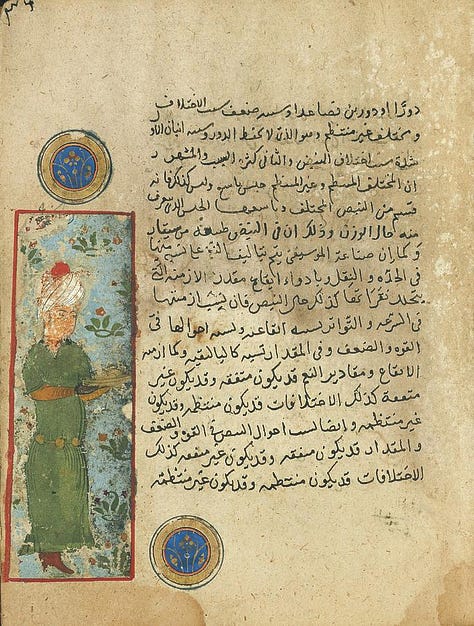
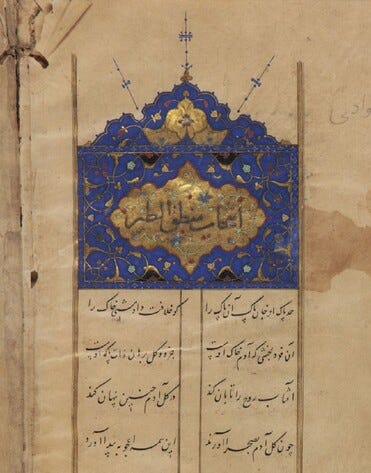
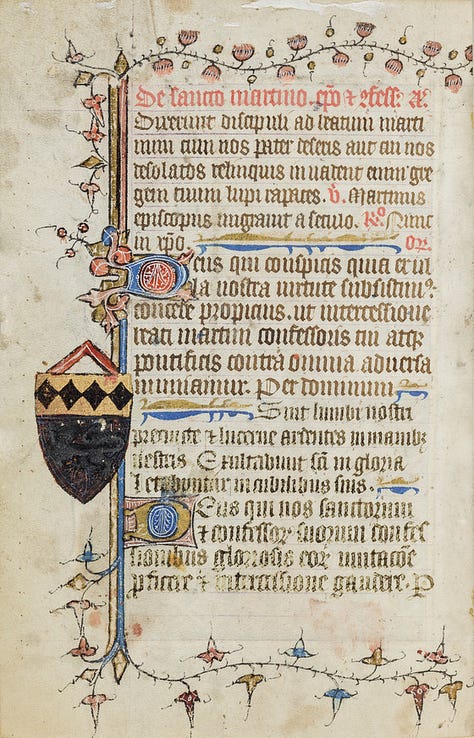
Arabic and Farsi have borrowed words from each other for many centuries.
The adopted word may have a different meaning from the original. In Farsi, Khaki, meaning “from the earth,” is an adjective whose meaning depends on the context. It means humble when used to describe a person; dusty, when used with an object that has fallen on dirt. It can also specify the color of an item, such as shalvar-e-khaki, meaning khaki-colored pants.
Farsi, like many languages, allows the creation of new verbs by combining a noun and another verb. Adopted words, thus, can be made into a whole universe of new combinations.
As it is summer, we thought we could have some fun with some of the words adopted and transformed by Farsi speakers in Iran.
Let’s start with Arabic and the word "Safa," meaning "peace" in Arabic. In most countries, people have peace or are at peace. Not in Farsi. Here, people do safa, Safa Kardan, which for a Farsi speaker means experiencing great and profound enjoyment, may be with a bit of contemplation.
How people do safa is highly individual. My grandmother would often sit by the window, smoking her Homa cigarette while sipping tea by her beloved Jasmine plant, “to do safa”. For my father, though, it was sitting by a stream with his cup of vodka, listening to traditional Persian music. For me, it is sitting on my porch in the summer and reading a book or relaxing by the sea. My mother, however, was too restless to ever “do safa”.
You don’t have to do safa alone. Doing safa with friends and family is especially cherished.
Safa, a Persianate foreign word, describes a uniquely Iranian feeling of contemplative joy.
A place or an activity can “have safa”, meaning it is both pleasant and soulful. My porch has safa. I know some coffee shops that have safa. And, for an Iranian, steaming water and the shade of a willow will always “have safa”.
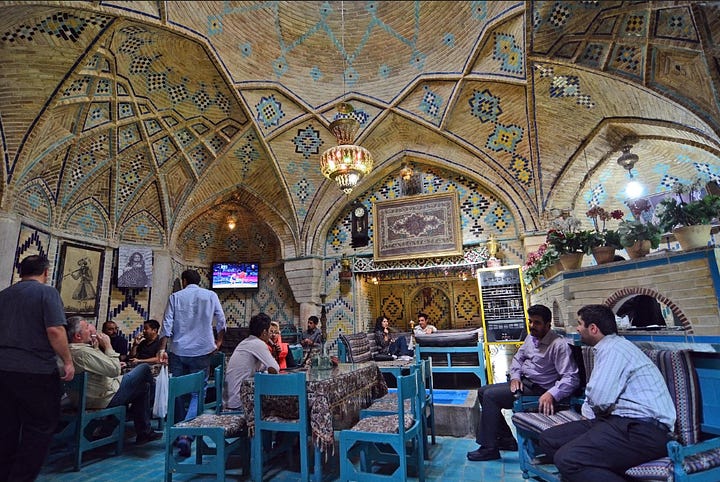
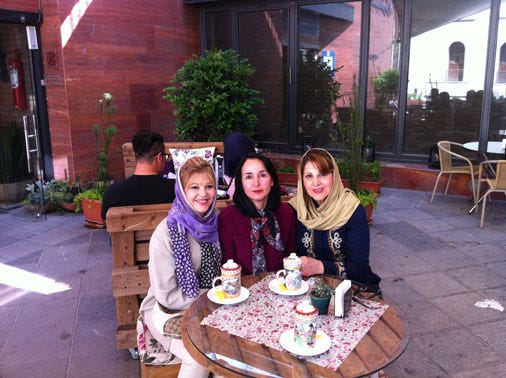
When new devices, such as the telephone, gramophone, and telegraph, arrived in Iran, people adopted their French names. They used the verb “zadan”, meaning to beat or play a musical instrument, to create verbs related to the use of the telephone. While in the English-speaking world we “call on the phone,” people in Iran play the device like an instrument: telefon mizanam, meaning I call on the phone. This combination may have come from the fact that the phones ring, and it is rather poetic.
Occasionally, people do telephone, telefon kardan, meaning I telephoned. They could also be payeh telefon, which literally means being by the base of the phone and refers to being on the phone. It probably comes from the time phones had a base.
In Farsi, most modern conveniences are referred to by their name in the language in which the device was first introduced to Iran. One curious case is the word “machine,” used to call a car. The first cars to appear on Tehran’s streets were American Fords. So logically, cars in Iran should be called cars. While the word “automobile” is used in formal contexts, no one uses it in colloquial settings. The word machine must have originated from the Italian "machina." If anyone has an idea why, I would love to hear it!
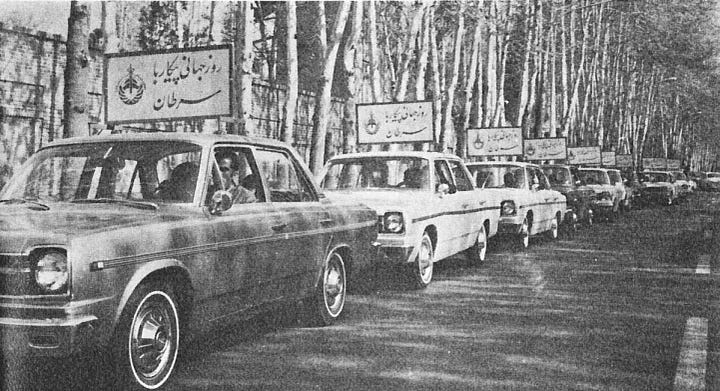
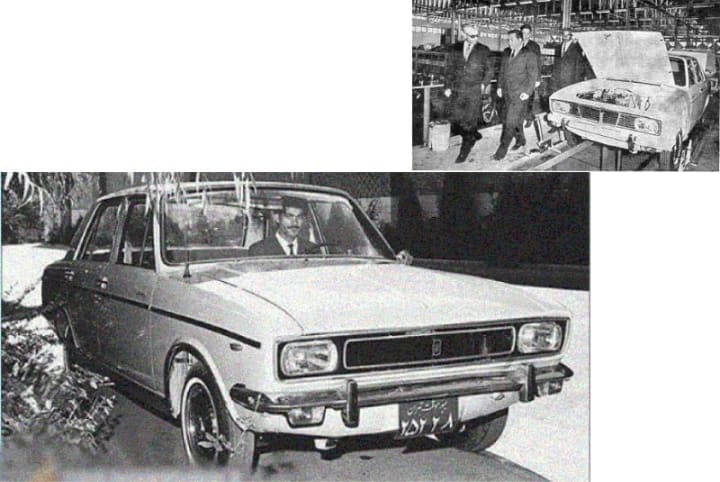
Until next time, have safa and stay cool!
Silenced Whispers Updates
We are happy to announce the paperback and hardback versions of Silenced Whispers are now available at Walmart.com! You can purchase it here.
Upcoming Events
July 31 through Aug. 3rd - I will have books at The Cape Cod Writers’ conference for sale and will be there to sign
Sept. 29 - Author Q&A at Kennebunk Port Library
Jan. 29, 2026 - Author Q&A at Portland Public Library
The series, “Library Talks,” offers something fresh each time about Iranian modernization and its relevance today. This format encourages returning guests to discover new insights at every talk. Events will conclude with a Q&A and book signing.
TBD - Boston Literary Evenings Talk at Northeastern University
Until our next issue, do safa.
-Afarin & Associates


